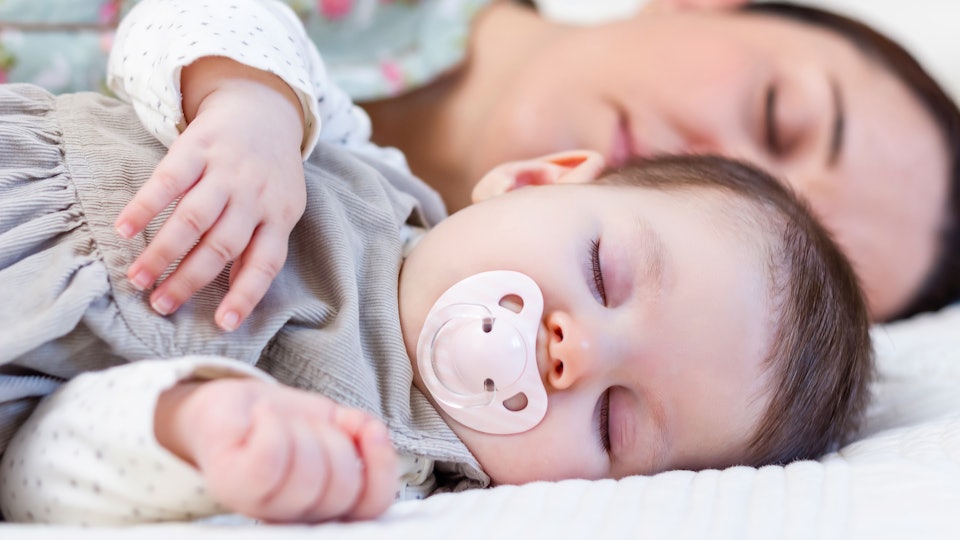Tonja Bizor helps shad some insight for us Mama’s who are navigating this chapter in our Baby’s routine.
We’re all willing to do whatever it takes to ensure that our babies are properly nourished, obviously. I’m not trying to tell you that you shouldn’t respond to your baby’s crying. You know your baby better than anyone. But having said that, if your baby is waking up seven or eight times a night and insisting that you come in and rock her back to sleep, that can have a serious impact on everybody’s sleep, including hers. A lot of babies have developed a dependency on nursing, rocking, sucking, and so on, in order to get to sleep.

Here are some things to consider:
-
IS BABY UNDER SIX MONTHS OLD?
Up until about the six month mark, babies typically need at least one nighttime feed. Their tummies are small, they haven’t started solid food yet, and formula and breast milk digest fairly quickly, so there’s a good chance they’re going to get a case of the munchies during the night.
-
IS BABY EATING ENOUGH DURING THE DAY?
Once baby’s capable of sleeping through the night without a feed, you need to make sure they’re getting the calories they need during their daytime hours. Just a quick but SUPER IMPORTANT reminder… Before you attempt to make any changes to your baby’s feeding schedule, talk to your pediatrician. Nighttime sleep is awesome but calories are essential. If your little one is underweight or not growing as fast as they should be, it might not be a good time to wean out night feedings, so again, chat with your doctor.

-
IS BABY FALLING ASLEEP QUICKLY WHEN YOU FEED THEM?
I’m sure you know this scenario. Baby starts crying 45 minutes after you put her down, you go in and offer a feed which she eagerly accepts, she takes about three quarters of an ounce, then promptly passes out in the middle of things. If this is happening frequently, it’s a good sign that your little one’s feeding for comfort instead of hunger. Babies who are genuinely hungry will usually eat until they’re full, whereas those who are feeding for comfort tend to drift off pretty quickly once they’ve gotten what they’re looking for.
-
DOES BABY SLEEP FOR A GOOD STRETCH AFTER FEEDING?
If baby does take a full feed at night, she should be able to sleep for around 3-4 hours afterwards. If not, it’s likely that they’re dependent on the sucking and soothing actions of your feeding routine to get to sleep.

-
WILL THEY GO BACK TO SLEEP WITHOUT A FEED?
So if your baby really is hungry, they usually won’t go back to sleep very easily until they’ve been fed. If they nod off after five or ten minutes of crying, that’s a pretty reliable sign that they were just looking for some help getting back to sleep and not actually in need of a feed.
-
DOES BABY FALL ASLEEP INDEPENDENTLY?
Can your baby fall asleep on their own? If you can put your baby down in her crib while she’s still awake, leave the room, and have baby fall asleep without any help from you, without a pacifier, or any other kind of outside assistance, then those nighttime cries are far more likely to mean that she genuinely needs a hand with something when she wakes up crying at night.

Determining whether your baby’s hungry at night is obviously a complicated situation. Calories are vital but so is sleep, so we typically end up paralyzed trying to balance the importance of the two. This tightrope is immeasurably easier to walk once you’ve taught your baby the skills they need to fall asleep on their own. Once the habit of feeding to sleep is broken, you can feel much more confident that their requests for a nighttime feed are out of necessity and not just a way of grabbing a few extra minutes with mom.
Tonja Bizor is the Owner and Certified Sleep Consultant at Tonja B’s Sleep Consulting. She utilizes evidence-based practices to help parents teach their children to sleep 12 hours through the night. She offers her families a peace of mind as they navigate sleepless nights. Follower her on Facebook and Instagram.Visit her website at tonjabsleepconsulting.com and book your free 15 minute consultation.
